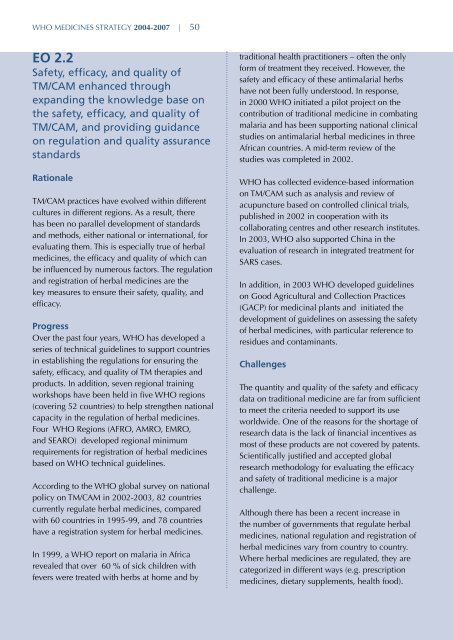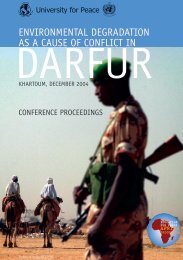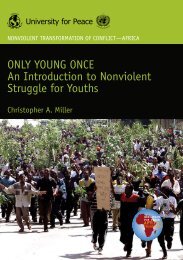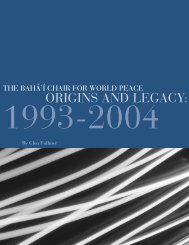who medicines strategy - libdoc.who.int - World Health Organization
who medicines strategy - libdoc.who.int - World Health Organization
who medicines strategy - libdoc.who.int - World Health Organization
You also want an ePaper? Increase the reach of your titles
YUMPU automatically turns print PDFs into web optimized ePapers that Google loves.
WHO MEDICINES STRATEGY 2004-2007 | 50EO 2.2Safety, efficacy, and quality ofTM/CAM enhanced throughexpanding the knowledge base onthe safety, efficacy, and quality ofTM/CAM, and providing guidanceon regulation and quality assurancestandardsRationaleTM/CAM practices have evolved within differentcultures in different regions. As a result, therehas been no parallel development of standardsand methods, either national or <strong>int</strong>ernational, forevaluating them. This is especially true of herbal<strong>medicines</strong>, the efficacy and quality of which canbe influenced by numerous factors. The regulationand registration of herbal <strong>medicines</strong> are thekey measures to ensure their safety, quality, andefficacy.ProgressOver the past four years, WHO has developed aseries of technical guidelines to support countriesin establishing the regulations for ensuring thesafety, efficacy, and quality of TM therapies andproducts. In addition, seven regional trainingworkshops have been held in five WHO regions(covering 52 countries) to help strengthen nationalcapacity in the regulation of herbal <strong>medicines</strong>.Four WHO Regions (AFRO, AMRO, EMRO,and SEARO) developed regional minimumrequirements for registration of herbal <strong>medicines</strong>based on WHO technical guidelines.According to the WHO global survey on nationalpolicy on TM/CAM in 2002-2003, 82 countriescurrently regulate herbal <strong>medicines</strong>, comparedwith 60 countries in 1995-99, and 78 countrieshave a registration system for herbal <strong>medicines</strong>.In 1999, a WHO report on malaria in Africarevealed that over 60 % of sick children withfevers were treated with herbs at home and bytraditional health practitioners – often the onlyform of treatment they received. However, thesafety and efficacy of these antimalarial herbshave not been fully understood. In response,in 2000 WHO initiated a pilot project on thecontribution of traditional medicine in combatingmalaria and has been supporting national clinicalstudies on antimalarial herbal <strong>medicines</strong> in threeAfrican countries. A mid-term review of thestudies was completed in 2002.WHO has collected evidence-based informationon TM/CAM such as analysis and review ofacupuncture based on controlled clinical trials,published in 2002 in cooperation with itscollaborating centres and other research institutes.In 2003, WHO also supported China in theevaluation of research in <strong>int</strong>egrated treatment forSARS cases.In addition, in 2003 WHO developed guidelineson Good Agricultural and Collection Practices(GACP) for medicinal plants and initiated thedevelopment of guidelines on assessing the safetyof herbal <strong>medicines</strong>, with particular reference toresidues and contaminants.ChallengesThe quantity and quality of the safety and efficacydata on traditional medicine are far from sufficientto meet the criteria needed to support its useworldwide. One of the reasons for the shortage ofresearch data is the lack of financial incentives asmost of these products are not covered by patents.Scientifically justified and accepted globalresearch methodology for evaluating the efficacyand safety of traditional medicine is a majorchallenge.Although there has been a recent increase <strong>int</strong>he number of governments that regulate herbal<strong>medicines</strong>, national regulation and registration ofherbal <strong>medicines</strong> vary from country to country.Where herbal <strong>medicines</strong> are regulated, they arecategorized in different ways (e.g. prescription<strong>medicines</strong>, dietary supplements, health food).











